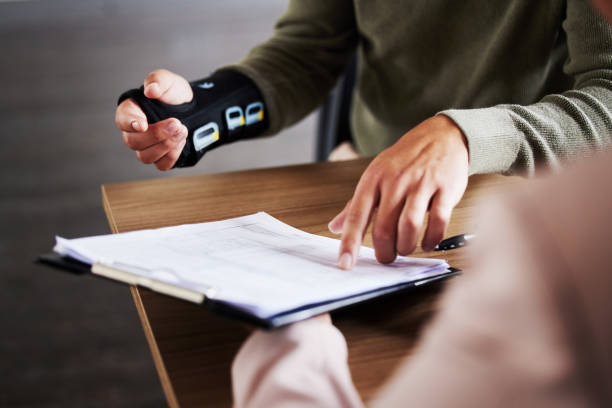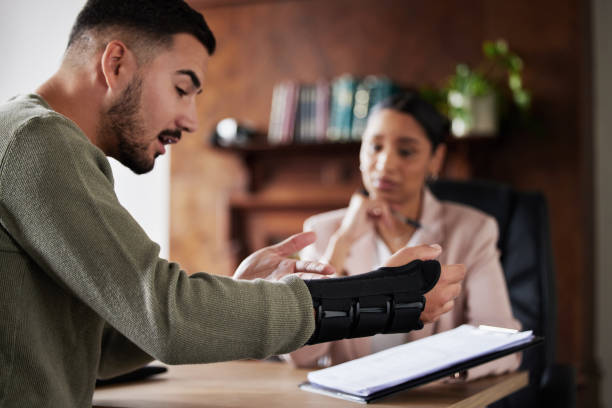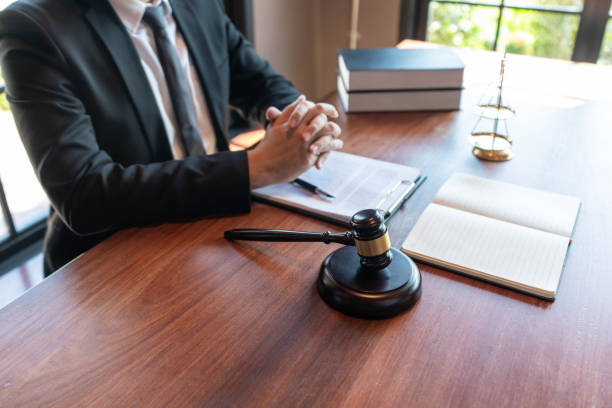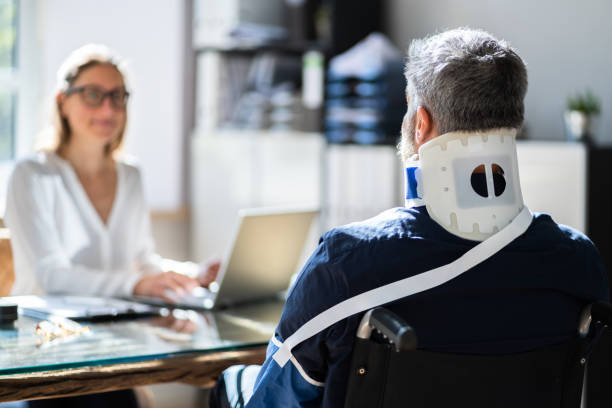How to Choose the Right Personal Injury Lawyer Flourtown, PA for Your Case
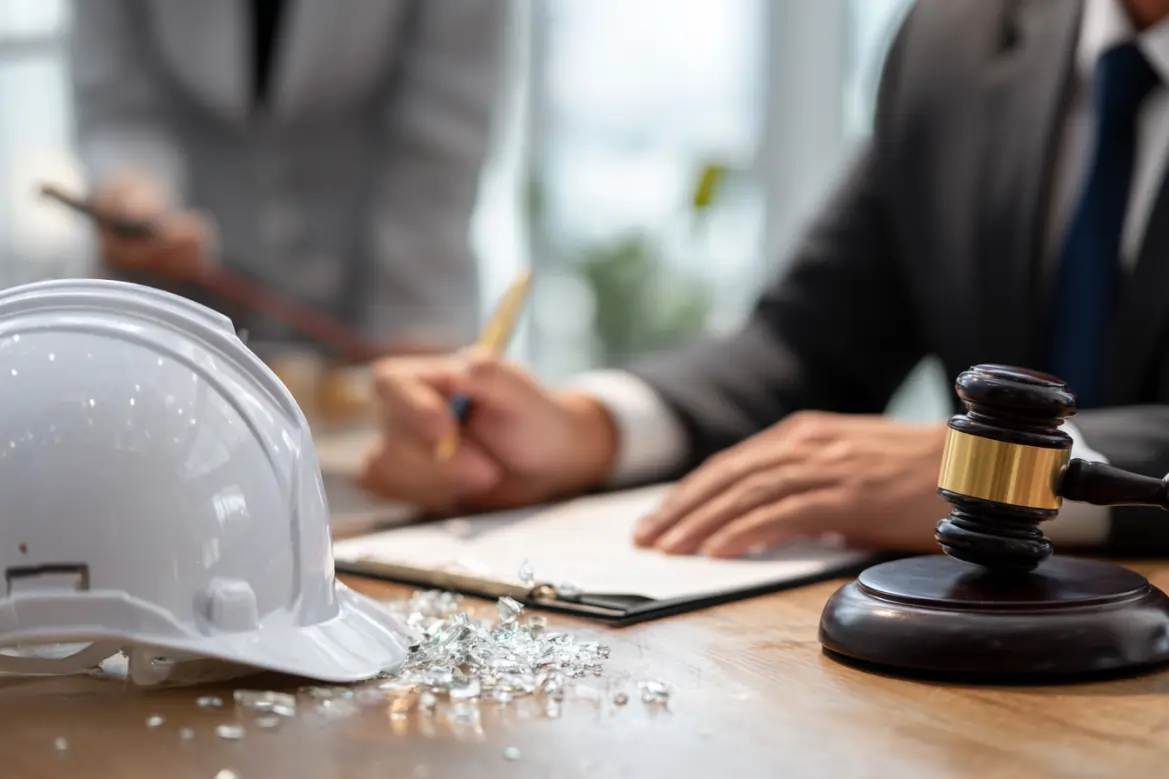
When you’re dealing with the aftermath of an accident or injury, choosing the right personal injury lawyer is critical. The lawyer you select can significantly impact the outcome of your case. Here’s a detailed guide to help you make an informed decision.
Evaluate the Expertise of a Flourtown, PA Personal Injury Attorney
Not all lawyers specialize in personal injury law, so it’s important to ensure your attorney has sufficient experience in this area. Consider the following:
– Specialization: Does the attorney focus exclusively on personal injury cases, or is it just part of their practice?
– Case Experience: Have they handled cases similar to yours, such as car accidents, slip and fall injuries, or medical malpractice?
– Track Record: Ask about their success rate in obtaining favorable settlements or verdicts.
Understanding Communication Styles with a Personal Injury Law Firm Flourtown, PA
Clear and open communication is vital throughout your case. Here’s what to look for when evaluating their communication style:
– Responsiveness: Do they respond promptly to emails or phone calls?
– Clarity: Are they able to explain legal concepts and strategies in a way that you can understand?
– Accessibility: Will you be working directly with the attorney, or will your case be delegated entirely to paralegals or junior staff?
How to Find the Best Personal Injury Lawyer in Flourtown, PA
Worthington Law Group
1432 Bethlehem Pike
Flourtown, PA 19031
http://www.worthingtonlawgroup.com
Take time to verify the qualifications and reputation of potential attorneys:
1. Licensing: Ensure they are licensed and in good standing with your state bar association.
2. Reviews: Look at online reviews on platforms like Google, Avvo, or Martindale-Hubbell. Pay attention to both positive and negative feedback from former clients.
3. Referrals: Ask trusted friends, family members, or colleagues for recommendations based on their experiences.
| Credential | Why It Matters |
| Licensing | Confirms legal ability to practice law in your state |
| Peer Reviews | Showcases how other attorneys rate them professionally |
| Client Feedback | Offers insight into past clients’ satisfaction levels |
Understanding Fee Structures with an Injury Lawyer Flourtown, PA
Understanding how an attorney charges for their services can help prevent surprises down the road: – Most personal injury lawyers work on a contingency fee basis (i.e., no fee unless you win). Confirm what percentage of your settlement they will take. – Inquire about additional costs such as court fees or expert witness expenses. – Request a written agreement outlining all terms before signing.
Finding Compassionate Representation with an Injury Attorney Flourtown, PA
A good personal injury lawyer does more than provide legal representation; they offer support during a tough time: – Do they seem genuinely interested in helping you recover financially and emotionally? – Are they willing to take time to address all your questions patiently?
Schedule a Consultation with a Montgomery County Personal Injury Lawyer
Before finalizing your decision: 1. Schedule consultations with at least 2–3 attorneys. 2. Be prepared with questions about their experience, approach, timeline expectations, etc. 3. Use this meeting as an opportunity not only to discuss details of your case but also gauge whether you feel comfortable working with them.
Choosing a qualified personal injury lawyer requires careful consideration of multiple factors including expertise, reputation, transparency regarding fees—and above all—trustworthiness. Taking these steps early ensures that you’re well-equipped with strong legal representation tailored directly toward securing justice for your unique circumstances.
How Insurance Companies Undervalue Personal Injury Claims and What You Can Do
When dealing with personal injury claims, one of the most challenging aspects for victims is navigating how insurance companies assess and often undervalue those claims. Insurance companies operate with the goal of minimizing payouts, which can leave victims without fair compensation for their injuries, damages, and losses. Understanding these practices and knowing how to protect your rights is essential.
Common Tactics Insurance Companies Use to Undervalue Claims
- Quick Settlement Offers: Insurers may offer a fast settlement to close the case before full damages or long-term impacts are understood.
- Disputing Liability: They may argue that the victim is partially or fully at fault to reduce or deny compensation.
- Downplaying Injuries: Companies might suggest that injuries are less severe than reported or unrelated to the incident.
- Requesting Excessive Documentation: By overwhelming claimants with requests for paperwork, they aim to delay or stall the process.
- Using Recorded Statements Against You: Anything you say in recorded statements may be twisted or used to devalue your claim.
How to Identify When Your Claim Is Undervalued
- The settlement offer seems disproportionately low compared to your medical bills and other losses.
- The insurance adjuster pressures you to accept a deal without consulting legal experts.
- Your pain and suffering or emotional distress are not considered in the settlement.
- Delays or lack of communication from the insurance company.
Steps to Protect Yourself and Maximize Your Claim
- Seek Legal Representation: Hiring a qualified personal injury attorney can level the playing field. Attorneys understand the tactics used by insurance companies and can negotiate on your behalf.
- Document Everything: Keep detailed records of medical treatments, receipts, lost wages, and any correspondence with insurers.
- Avoid Giving Recorded Statements: Politely decline giving recorded statements without consulting your lawyer.
- Understand Your Case’s Worth: Work with your attorney to assess all damages, including non-economic ones like pain and suffering.
- Be Patient: Avoid accepting the first offer. Settlements often improve after negotiations.
Table: Economic vs. Non-Economic Damages
| Type of Damage | Examples |
| Economic Damages | Medical bills, rehabilitation costs, lost wages, property damage |
| Non-Economic Damages | Pain and suffering, emotional distress, loss of enjoyment of life |
Benefits of Hiring a Personal Injury Lawyer
- Legal Expertise: They understand complex legal processes and ensure all deadlines are met.
- Negotiation Skills: Lawyers are skilled negotiators who fight for fair settlements.
- Accurate Valuation: They evaluate both economic and non-economic damages to seek maximum compensation.
- Representation in Court: If needed, a lawyer can escalate your case to litigation.
By understanding how insurance companies operate and taking the necessary steps to protect yourself, you can increase your chances of receiving fair compensation. Working with an experienced personal injury attorney is one of the most effective ways to ensure that your rights are upheld.
How Insurance Companies Undervalue Personal Injury Claims and What You Can Do
When dealing with personal injury claims, many victims encounter tactics from insurance companies designed to minimize payouts. It’s crucial to understand these strategies and take proactive steps to protect your rights and secure the compensation you deserve. This guide explores common ways insurance companies undervalue claims and provides actionable steps you can take to counteract these practices.
Common Tactics Used by Insurance Companies
- Lowball Settlement Offers: Offering a settlement far below the actual value of your claim, hoping you’ll accept it quickly.
- Disputing Liability: Questioning who is at fault in order to reduce or deny your claim.
- Delaying the Process: Dragging out negotiations, banking on victims needing money urgently.
- Downplaying Injuries: Claiming that your injuries are minor or unrelated to the accident.
- Using Your Statements Against You: Twisting anything you say during recorded statements or phone calls.
Understanding these tactics can help you anticipate potential challenges when negotiating with an insurer.
Steps You Can Take to Protect Yourself
- Keep detailed records of all medical treatments, expenses, and correspondence with insurance adjusters.
- Save receipts for out-of-pocket costs related to your recovery.
- Take photos of injuries, property damage, and any relevant accident scenes.
- Refrain from giving recorded statements without consulting legal counsel first.
- Be cautious about discussing fault or providing excessive detail early in the process.
- Visit a doctor immediately after the injury even if symptoms seem minor at first.
- Follow all recommended treatment plans and keep detailed medical records as proof of injury severity.
- Understand Your Claim’s Worth Use this table as a reference for evaluating potential compensation components:
| Type of Damages | Examples |
| Medical Expenses | Emergency care, surgeries, rehabilitation |
| Lost Wages | Time off work due to recovery |
| Pain and Suffering | Emotional distress, physical discomfort |
| Property Damage | Vehicle repairs/replacement |
- An experienced attorney will understand how insurers operate and can negotiate effectively on your behalf.
- Lawyers can calculate an accurate estimate of what your case is worth based on evidence.
Why Legal Representation is Essential
- Advocate for full compensation by highlighting evidence they may otherwise dismiss.
- Prevent insurers from exploiting loopholes or misinterpreting laws in their favor.
- Handle complex negotiations while allowing you to focus on recovery.
By recognizing how insurance companies undervalue claims and taking proactive steps like hiring legal counsel or maintaining strong documentation, you improve your chances of obtaining fair compensation after a personal injury incident.
Essential Steps to Take After a Motorcycle Accident with a Personal Injury Attorney Flourtown, PA
A motorcycle accident can be a disorienting and traumatic experience. Taking the proper steps immediately following the accident is crucial to protecting your health, your rights, and your ability to seek compensation for any damages or injuries. Here is a detailed guide on the essential actions you should take after being involved in a motorcycle accident.
1. Prioritize Safety and Seek Medical Attention
The first and most important concern after any accident is your safety and health.
– Move to a safe location if possible, away from oncoming traffic.
– Check yourself and others involved for injuries. If anyone is hurt, call emergency services immediately.
– Even if you feel fine, seek medical attention as some injuries may not show symptoms immediately (e.g., internal injuries or concussions).
2. Document the Scene
Gathering evidence at the scene can be critical for building a strong personal injury claim later.
– Take photographs or videos: Capture images of the accident scene, damages to your bike and other vehicles, and any visible injuries.
– Record details: Note the time, date, weather conditions, and road conditions at the location of the accident.
– Identify witnesses: If there were bystanders who saw the accident occur, ask for their names and contact information.
3. Call the Police
In many states, reporting a motorcycle accident to the police is required by law if there are injuries or significant property damage.
– Ensure you provide a clear and accurate statement to law enforcement.
– Request a copy of the police report once it becomes available, as this will be an important document for your insurance claim or legal case.
4. Exchange Information
Exchange contact and insurance details with the other driver(s) involved in the accident. Essential information to collect includes:
– Name and phone number
– Driver’s license number
– Insurance company and policy number
– License plate number of the vehicle(s)
Avoid discussing fault or apologizing, as these statements could be used against you later.
5. Notify Your Insurance Company
It’s important to inform your insurance provider about the accident as soon as possible. Provide them with accurate details, but avoid making any statements about fault until you’ve consulted with an attorney.
6. Keep Records
Maintaining detailed records after the accident can strengthen your case. Keep the following:
– Medical bills and records of treatments
– Repair estimates or receipts for your motorcycle
– Receipts for other expenses related to the accident (e.g., transportation costs)
– A journal documenting how your injuries have affected your daily life
| Document Type | Purpose |
| Police Report | Provides an objective account of the incident |
| Medical Records | Establishes the extent of your injuries |
| Witness Statements | Supports your version of events |
7. Consult a Personal Injury Lawyer
Motorcycle accidents often involve complex legal issues, such as determining fault and negotiating with insurance companies. An experienced personal injury lawyer can:
– Evaluate the value of your claim
– Gather additional evidence to strengthen your case
– Represent you in negotiations or court if necessary
Final Thoughts
Taking these steps after a motorcycle accident can help protect your rights and maximize any compensation you may be entitled to receive. Acting quickly and methodically can make the difference in the outcome of your case.
The Importance of Seeking Legal Help After a Personal Injury Incident
Suffering a personal injury can be a stressful and overwhelming experience, especially when it comes to navigating the legal and financial challenges that often follow. Seeking legal help after a personal injury incident is crucial to ensure your rights are protected, and you receive the compensation you deserve. Below, we explore why obtaining professional legal assistance is essential and how it can make a difference in your case.
Protecting Your Legal Rights
A personal injury lawyer acts as your advocate, safeguarding your legal rights and ensuring that you are treated fairly throughout the claims process. Without proper legal guidance, it’s possible to unknowingly forfeit certain rights or accept settlements that don’t adequately compensate for your losses.
- Handling communication with insurance companies: Insurers often aim to minimize their payouts. Attorneys ensure your interests are prioritized.
- Providing legal representation: If your case escalates to court, an experienced lawyer can effectively present your side of the story.
- Educating you about your rights: A lawyer ensures that you understand all legal options available to you.
Navigating Complex Legal Processes
The legal system can be difficult to navigate, particularly for individuals unfamiliar with personal injury laws. From filing claims to understanding legal jargon, each step in the process requires careful attention to detail.
- Filing necessary documentation: Missing deadlines or submitting incomplete documents can jeopardize your case.
- Calculating damages: Accurately assessing both economic (medical bills, lost wages) and non-economic damages (pain and suffering).
- Negotiating settlements: An experienced lawyer knows how to negotiate with opposing parties to maximize compensation.
Avoiding Common Pitfalls
- Providing recorded statements to insurance companies without legal advice.
- Accepting low initial settlement offers out of desperation.
- Overlooking long-term costs associated with injuries (e.g., ongoing medical expenses or lost earning capacity).
By securing legal representation early, you reduce the likelihood of making these costly mistakes.
How Legal Help Can Maximize Compensation
An experienced attorney brings invaluable expertise to your case, helping you achieve a fair settlement or court award. They analyze evidence such as medical records, accident reports, and witness statements to build a strong case on your behalf.
| Type of Damages | Examples |
| Economic Damages | Medical expenses, property damage, lost wages |
| Non-Economic Damages | Pain and suffering, emotional distress, loss of enjoyment of life |
| Punitive Damages (in some cases) | Penalties aimed at punishing egregious negligence or misconduct |
When to Seek Legal Help
It’s advisable to consult with an attorney as soon as possible after a personal injury incident. Early intervention ensures that evidence is preserved, witnesses can be interviewed promptly, and deadlines (such as statutes of limitations) are met without delay.
Seeking professional legal assistance is not just about pursuing monetary compensation—it’s about ensuring justice is served and holding responsible parties accountable for their actions. A skilled attorney provides the guidance needed at every stage of the process so that you can focus on recovery while they handle the complexities of your case.
Key Factors to Consider When Evaluating a Personal Injury Claim
Evaluating a personal injury claim involves assessing various elements to determine the potential for compensation. Understanding these factors can help you make informed decisions about pursuing legal action. Below are the key factors to consider when evaluating your personal injury claim.
1. Severity of Injuries
The extent and severity of your injuries play a significant role in determining the value of your claim. Generally, more serious injuries result in higher compensation due to increased medical costs, pain, and suffering. Some examples include:
– Minor injuries: Soft tissue damage, sprains, or small cuts that heal quickly and require minimal treatment.
– Moderate injuries: Fractures, moderate burns, or prolonged recovery periods that may result in temporary disability. – Severe injuries: Spinal cord injuries, traumatic brain injuries (TBI), permanent disability, or life-altering conditions.
2. Medical Expenses
Medical bills are one of the clearest indicators of damages in a personal injury case. Be sure to account for:
– Initial emergency care costs (ambulance rides, ER visits).
– Ongoing treatment expenses such as physical therapy or surgeries. – Prescription medication and required medical equipment. – Future anticipated medical costs for chronic or permanent conditions.
3. Lost Wages and Reduced Earning Capacity
If your injury has caused you to miss work or impacted your ability to earn a living in the future, these losses should be factored into your claim. Key considerations include:
– Days missed from work due to recovery. – A reduction in earning capacity if an injury limits your ability to perform certain tasks or jobs. – Loss of promotions or career advancement opportunities.
| Impact on Employment | Example Scenario | Potential Damages |
| Temporary loss | Short-term leave | Compensation for missed wages |
| Permanent disability | Career-ending TBI | Lifetime loss of income |
4. Pain and Suffering
This category includes non-economic damages like physical pain and emotional distress resulting from the accident. Courts may evaluate factors such as: – The intensity of physical pain experienced during recovery. – Emotional trauma such as anxiety or PTSD resulting from the incident. – Permanent impairments that reduce quality of life (e.g., loss of mobility).
5. Liability and Negligence
To build a strong claim, it’s crucial to establish who was at fault for the accident: – Did another party act negligently? – For example: A distracted driver causing an accident or a property owner failing to repair unsafe conditions. – Was there any shared liability? Some states follow “comparative negligence” laws where damages may be reduced based on how much fault is attributed to you.
6. Evidence Supporting Your Claim
The strength of the evidence you can provide is essential for substantiating your case: – Photos/videos from the scene showing hazards that contributed to your injury. – Witness statements corroborating your account. – Medical records documenting diagnoses and treatments. – Expert testimony from doctors or accident reconstruction specialists.
7. Statute of Limitations
Every personal injury case must comply with specific time limits set by law—known as the statute of limitations—to file a lawsuit: – These vary by jurisdiction but typically range between one and three years after the date of injury. – Failure to file within this period could nullify your right to seek compensation altogether.
Understanding these aspects ensures you consider all avenues for recovering damages while strengthening legal arguments for fair compensation. Employing an experienced attorney can further support this process by navigating complexities specific to personal injury law and negotiating with insurance companies effectively.
Finding the Right Flourtown, PA Personal Injury Lawyer to Protect Your Rights After an Accident
Being involved in an accident can be a life-altering experience. Beyond physical injuries, there are emotional, legal, and financial challenges that may arise. Knowing how to protect your rights as a personal injury victim is crucial to ensuring that you receive the compensation and justice you deserve. This guide outlines the key steps and considerations to keep in mind after an accident.
1. Prioritize Safety and Seek Medical Attention
- Ensure your immediate safety by moving away from potential hazards, if possible.
- Call emergency services to report the incident and request medical assistance.
- Even if injuries seem minor at first, seek a thorough medical evaluation as soon as possible. Some injuries may not manifest symptoms immediately but could worsen over time.
2. Document Everything
Proper documentation is essential for building a strong personal injury case. Make sure to: – Take photographs or videos of the accident scene, injuries, property damage, and any relevant environmental conditions (e.g., wet floors or faulty equipment).
– Collect contact details of witnesses who can provide statements about what occurred.
– Keep copies of all medical records, police reports, repair estimates, and any correspondence related to the incident.
| Type of Document | Importance |
| Accident Scene Photos | Serves as evidence of how the accident happened |
| Medical Records | Demonstrates the extent of your injuries |
| Witness Statements | Provides unbiased accounts supporting your claim |
| Police Reports | Offers an official account of the event |
3. Avoid Admitting Fault
Even if you feel partially responsible for the accident, avoid making statements that could imply liability. Anything you say at the scene or during discussions with insurance companies can potentially be used against you later.
4. Notify Your Insurance Provider
Report the incident to your insurance company promptly but stick to basic facts when discussing details with them. Avoid speculating about fault or providing unnecessary information until you’ve consulted with an attorney.
5. Be Cautious When Dealing With Insurance Adjusters
Insurance companies often aim to settle claims for as little money as possible. Protect yourself by: – Avoiding recorded statements without legal counsel present. – Reviewing settlement offers carefully; initial offers are often lower than what you may be entitled to. – Consulting with an experienced personal injury lawyer before agreeing to any terms.
6. Understand Statutes of Limitations
Each state has specific deadlines—known as statutes of limitations—for filing personal injury claims. Missing this deadline can result in losing your right to pursue compensation altogether. Familiarize yourself with these timelines or speak with an attorney who can guide you through this process.
7. Consult With a Personal Injury Lawyer
Navigating personal injury law can be complex without professional assistance: – A lawyer will help evaluate liability, gather evidence, and calculate damages. – They will negotiate with insurance companies on your behalf. – If necessary, they will represent you in court to ensure fair treatment under the law.
Final Thoughts
Taking proactive steps after an accident is essential for protecting your legal rights and maximizing your compensation claim’s potential value. By prioritizing self-care, documenting evidence effectively, and seeking appropriate legal guidance when needed, you can navigate this challenging period more confidently while safeguarding your interests effectively.
- How to Choose the Right Personal Injury Lawyer Flourtown, PA for Your Case
- Seeking Immediate Medical Attention: Advice from a Flourtown, PA Personal Injury Lawyer
- How a Personal Injury Lawyer Flourtown, PA Can Provide Full-Service Support for Your Case
- Finding the Right Flourtown, PA Personal Injury Attorney Through Legal Directories and Bar Association Resources
- How to Choose a Flourtown, PA Personal Injury Lawyer for Maximum Recovery and Compensation
- Finding the Best Flourtown, PA Personal Injury Lawyer to Navigate Your Case
- 5 Essential Tips for Selecting the Right Personal Injury Lawyer Flourtown, PA for Your Case
- Choosing the Right Personal Injury Law Firm Flourtown, PA: Why Experience Matters
- Key Factors to Consider When Choosing a Flourtown, PA Personal Injury Attorney
